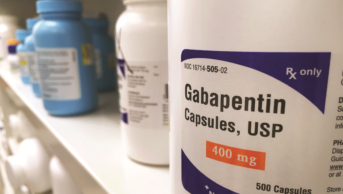
Shutterstock.com
A GP IT service provider has said it will change its systems after it was revealed that GPs were able to prescribe “ghost branded generics”, costing the NHS an extra £11.6m per year in reimbursement to community pharmacy.
GPs using the SystmOne (TPP; Leeds, UK) electronic health record system have been able to specify the manufacturer of the generic drugs they prescribe to patients, unlike GPs using other systems such as EMIS (EMIS Health; Leeds).
Choosing the manufacturer through SystmOne has meant that when a pharmacist dispensed a generic from the specified manufacturer, they were reimbursed at the price specified by the manufacturer, instead of a value in line with the NHS Drug Tariff.
The issue was raised following an analysis of prescribing and reimbursement data by the Centre for Evidence-Based Medicine (EBM DataLab) at the University of Oxford, which runs the OpenPrescribing project — a searchable interface for raw prescribing data files published by the NHS.
In a blog outlining the issue, Brian MacKenna, a pharmacist in the NHS England Medicines and Diagnostics Policy Unit working with OpenPrescribing, said the NHS Business Services Authority (NHSBSA) coded generics from a specified manufacturer in such a way, “which means dispensers are reimbursed at the price of the manufacturer’s product as specified”.
He said that although GPs are prescribing generically, they “are specifying which manufacturer of the particular generic the pharmacy should supply, in brackets, after the name of the drug”.
“The pharmacy must supply this manufacturer’s brand, and they are then reimbursed at the specific price provided, not the drug tariff price that normally governs the pricing of generic medicines,” he added. “So it is treated as a ‘branded generic’ for dispensing and reimbursement purposes, but is coded as a normal generic.”
“We think this is inconsistent, and we are now calling these products ‘ghost branded generics’,” he said.
MacKenna has estimated “ghost branded generic prescribing” may be costing the NHS “as much as an extra £11.6m per year”.
He added that further analysis revealed “SystmOne as the [electronic health record] used in general practices where most of the excess costs related to ghost branded generics occurred”.
MacKenna told the The Pharmaceutical Journal: “I think ghost branded generics are a really useful and frankly amazing example of how pharmacists and other clinicians can use data to spot problems in prescribing and get them fixed.”
TPP, which supplies SystmOne to 40% of GPs in England, has said it is now planning to roll out changes to its IT system from 14 February 2019.
John Parry, clinical director at TPP, told The Pharmaceutical Journal: “The opportunity to work together with EBM DataLab has been exciting. It demonstrates how intelligent data-driven investigation, when coupled with rapid system improvement, can benefit the NHS.
“The changes delivered this month in SystmOne will enable our users to have a tight control over branded generic prescribing.”
TPP confirmed that prescribers will still be able to prescribe ghost branded generics where necessary, such as when prescribing Category 1 antiepileptics where the manufacturer is specified for clinical reasons.
- This article was amended on 13 February 2019 to reflect the fact that the changes being made to the TPP system are minor.
You may also be interested in
